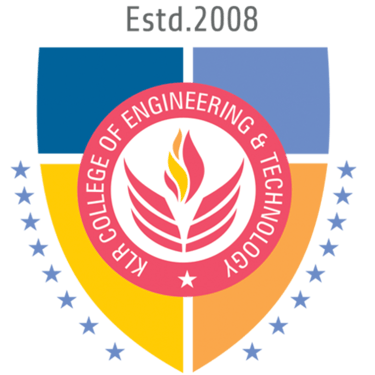
Code of Ethics
At KLRCET, we uphold a culture of integrity, transparency, and accountability across all academic, administrative, and research activities. This Code of Ethics serves as a guiding framework for ethical conduct by all members of the institution.
1. Ethical Evaluation and Oversight
All activities, especially research and institutional initiatives, are subject to ethical review by the Ethics Oversight Panel to ensure they align with institutional values and societal norms.
Regular monitoring and evaluations are conducted to maintain compliance throughout the lifecycle of projects or operations.
2. Integrity and Accountability
Every individual is expected to perform their duties with honesty, diligence, and accountability.
Misrepresentation of information, falsification of data, and exploitation of institutional resources for personal gain are strictly prohibited.
Transparency in decision-making and reporting is essential at all levels.
3. Intellectual Responsibility
Plagiarism in any form—academic, research, or administrative—is a serious violation of institutional ethics.
Proper credit must be given when using others' ideas, content, or data, with complete and accurate citations.
Originality, critical thinking, and respect for intellectual property are core academic values.
4. Authorship and Acknowledgment
Authorship or recognition must reflect genuine contributions.
Individuals should not claim credit for work not done by them, nor deny credit to those who contributed significantly.
5. Financial and institutional Accountability
All financial dealings, especially those involving public funds or grants, must be transparently documented and periodically audited.
Forecasting or manipulating results to influence fund disbursement or decision-making is strictly forbidden.
6. Respect for Human Rights and Dignity
All institutional activities must uphold the dignity, rights, and well-being of individuals, especially when engaging with students, staff, research participants, or the public.
Discrimination, harassment, or any form of exploitation is not tolerated.
7. Commitment to Fairness and Equity
Equal opportunity, non-discrimination, and merit-based systems are to be followed in recruitment, evaluation, promotion, and resource distribution.
All actions must reflect fairness, justice, and inclusivity.
8. Professional Conduct
Members of the institution are expected to maintain decorum, professionalism, and mutual respect in all interactions.
Conflicts of interest must be disclosed and appropriately managed to avoid bias or unethical advantage.
